第52章
He was furious with the President for stealing a march on him with the Blandureaus.Chesnel's successor, the du Roncerets' man, had just fallen into a snare set by the old judge; the truth was out, he knew the secret.
"It is lucky that we spoke to you about the matter, my dear master,"said Camusot, "or you might have given up all hope of seating your son on the bench or of marrying him to Mlle.Blandureau.""But it is no question of my son, nor of his marriage," said the Vice-President; "we are talking of young Comte d'Esgrignon.Is he or is he not guilty?""It seems that Chesnel deposited the amount to meet the bill with Mme.
du Croisier," said Michu, "and a crime has been made of a mere irregularity.According to the charge, the Count made use of the lower half of a letter bearing du Croisier's signature as a draft which he cashed at the Kellers'.""An imprudent thing to do," was Camusot's comment.
"But why is du Croisier proceeding against him if the amount was paid in beforehand?" asked Vice-President Blondet.
"He does not know that the money was deposited with his wife; or he pretends that he does not know," said Camusot.
"It is a piece of provincial spite," said Michu.
"Still it looks like a forgery to me," said old Blondet.No passion could obscure judicial clear-sightedness in him.
"Do you think so?" returned Camusot."But, at the outset, supposing that the Count had no business to draw upon du Croisier, there would still be no forgery of the signature; and the Count believed that he had a right to draw on Croisier when Chesnel advised him that the money had been placed to his credit.""Well, then, where is the forgery?" asked Blondet."It is the intent to defraud which constitutes forgery in a civil action.""Oh, it is clear, if you take du Croisier's version for truth, that the signature was diverted from its purpose to obtain a sum of money in spite of du Croisier's contrary injunction to his bankers," Camusot answered.
"Gentlemen," said Blondet, "this seems to me to be a mere triffle, a quibble.--Suppose you had the money, I ought perhaps to have waited until I had your authorization; but I, Comte d'Esgrignon, was pressed for money, so I---- Come, come, your prosecution is a piece of revengeful spite.Forgery is defined by the law as an attempt to obtain any advantage which rightfully belongs to another.There is no forgery here, according to the letter of the Roman law, nor according to the spirit of modern jurisprudence (always from the point of a civil action, for we are not here concerned with the falsification of public or authentic documents).Between private individuals the essence of a forgery is the intent to defraud; where is it in this case? In what times are we living, gentlemen? Here is the President going away to balk a preliminary examination which ought to be over by this time! Until to-day I did not know M.le President, but he shall have the benefit of arrears; from this time forth he shall draft his decisions himself.You must set about this affair with all possible speed, M.Camusot.""Yes," said Michu."In my opinion, instead of letting the young man out on bail, we ought to pull him out of this mess at once.Everything turns on the examination of du Croisier and his wife.You might summons them to appear while the court is sitting, M.Camusot; take down their depositions before four o'clock, send in your report to-night, and we will give our decision in the morning before the court sits.""We will settle what course to pursue while the barristers are pleading," said Vice-President Blondet, addressing Camusot.
And with that the three judges put on their robes and went into court.
At noon Mlle.Armande and the Bishop reached the Hotel d'Esgrignon;Chesnel and M.Couturier were there to meet them.There was a sufficiently short conference between the prelate and Mme.du Croisier's director, and the latter set out at once to visit his charge.
At eleven o'clock that morning du Croisier received a summons to appear in the examining magistrate's office between one and two in the afternoon.Thither he betook himself, consumed by well-founded suspicions.It was impossible that the President should have foreseen the arrival of the Duchesse de Maufrigneuse upon the scene, the return of the public prosecutor, and the hasty confabulation of his learned brethren; so he had omitted to trace out a plan for du Croisier's guidance in the event of the preliminary examination taking place.
Neither of the pair imagined that the proceedings would be hurried on in this way.Du Croisier obeyed the summons at once; he wanted to know how M.Camusot was disposed to act.So he was compelled to answer the questions put to him.Camusot addressed him in summary fashion with the six following inquiries:--"Was the signature on the bill alleged to be a forgery in your handwriting?--Had you previously done business with M.le Comte d'Esgrignon?--Was not M.le Comte d'Esgrignon in the habit of drawing upon you, with or without advice?--Did you not write a letter authorizing M.d'Esgrignon to rely upon you at any time?-- Had not Chesnel squared the account not once, but many times already?--Were you not away from home when this took place?"All these questions the banker answered in the affirmative.In spite of wordy explanations, the magistrate always brought him back to a "Yes" or "No." When the questions and answers alike had been resumed in the proces-verbal, the examining magistrate brought out a final thunderbolt.